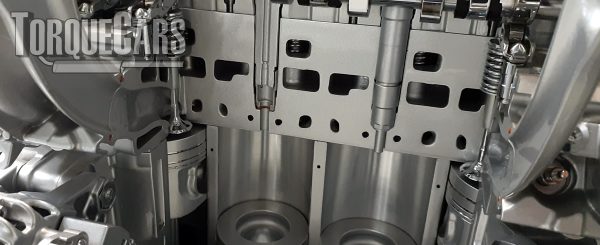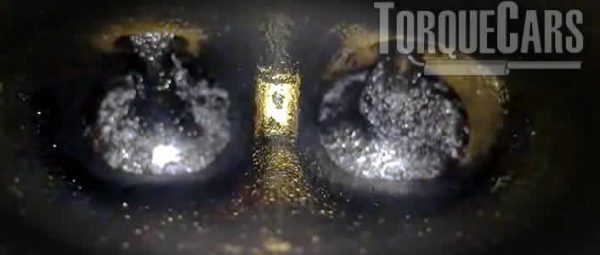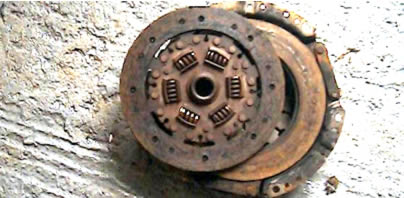1.6 TDi Problems & Issues.
"Here is an overview of the most typical problems encountered on the VW group 1.6 TDi engine"
The VAG 1.6 TDI engines are generally reliable and long-lasting, but like all engines, they can develop certain issues over time. Some common issues with these engines include:
- EGR Valve Failure
- Glow Plugs Failure
- Injector Failure
- Turbocharger Issues
- Oil Leaks
- DPF Failure
- Warm & Cold Start Issues
Please watch our video which covers the main 1.6 TDi problems and faults. Be sure to keep up with our latest YouTube content and subscribe. This video goes into more detail on the issues mentioned in this article.
A list of engine codes used on the Volkswagen Group 1.6 TDI engine: (please let me know if I've missed any).
- CAYA
- CAYB
- CAYC
- CAYE
- CAYD
- CLHA
- CAYC
- CRKB
- CXMA
Older engine codes included...
- JR
- RA
- SB
- 1V
So let's break these down and set about diagnosing these common issues.
- EGR Valve Failure
The EGR (Exhaust Gas Recirculation) system is an emission control system found in internal combustion engines. It works by redirecting a portion of an engine's exhaust gas back into the combustion chamber. This reduces the amount of nitrogen oxides (NOx) emissions, which are harmful pollutants.
This can result in poor engine performance, higher emissions, and the appearance of the check engine light.
The EGR system helps maintain a specific air-fuel ratio in the engine by reducing the amount of oxygen available for combustion. This in turn lowers the combustion temperature, which reduces the formation of NOx.
However, problems with the EGR system can cause a variety of issues with the 1.6TDi affecting its performance. Some common problems and symptoms include: clogging of the EGR valve, which can cause rough idling or stalling; failure of the EGR valve to open or close properly, which can cause performance issues with a lack of power and could increase the cars emissions; Also a buildup of carbon deposits in the EGR system, which can cause reduced engine performance and increased emissions. Regular maintenance, including cleaning the EGR system, can help prevent these issues.
- Glow Plugs Failure
In cold weather, glow plugs are a crucial part of a diesel vehicle's starting system. As a result, if they experience any sort of issue, starting the car may prove to be challenging.
It is good practice to wait for the glow plug light to go off before starting your engine, especially in cold weather.
Glow plugs are quite simply heating devices used on the 1.6 TDi. They are used to preheat the air in the engine's combustion chamber to help start the engine in cold weather. The glow plugs work by heating up when electrical current is applied to them, producing heat that warms the air in the combustion chamber. This makes it easier for the diesel fuel to ignite, allowing the engine to start smoothly and efficiently.
Glow plugs typically have a timer, which regulates the length of time that they stay on, depending on the temperature of the engine. They also have a temperature sensor, which turns them off once the engine is warm enough to start without assistance.
If the glow plugs fail, the engine may not start or may have difficulty starting in cold weather, and the engine may run poorly or have reduced power. Regular maintenance and replacement of worn or damaged glow plugs can help ensure reliable engine performance.
The various systems which engage the glow plugs and shut off other systems can fail leading to symptoms resembling a failed glow plug.
- Injector Failure
Between 2009 and 2013, there were problems with injectors in vehicles powered by VAG 1.6 TDI engines. The insulation on the Siemens injectors that were installed in these engines had an issue.
Check also the high pressure fuel pump which can fail over time, but check the fuel filter, if this is clogged the HPFP will not be able to provide sufficient fuel.

- Turbocharger Issues
Numerous reports have surfaced regarding problems with 1.6 TDI engine vehicles' turbocharger failures.
This can lead to poor engine performance, increased emissions, and can trigger the check engine light.
- Oil Leaks
Oil leaks are another frequent problem with the 1.6 TDI engines, and if they are not fixed, they can result in low oil pressure and even engine damage.
- DPF Failure
DPF failure is another common issue with vehicles powered by VAG 1.6 TDI engines. This may result in decreased engine performance, elevated emissions, and the check engine light.
- Warm & Cold Start Issues
Long cranking times, trouble starting when cold or warm and total failure to start. This is usually down to poor maintenance, especially around the relays and glow plugs.
Causes Of These Problems & How To Prevent Them?
Numerous reasons such as wear and tear, improper maintenance, and exposure to challenging driving conditions, can contribute to these problems.
Regular maintenance, including frequent oil and filter changes, can help to avoid these problems and increase the engine's lifespan.
To prevent further harm, it is crucial to have your engine checked by a professional as soon as you suspect any problems.
Do VAG 1.6 TDI Engines Suffer From Carbon Build-up Problems?
Carbon can accumulate on the intake valves, pistons, and combustion chamber of VAG 1.6 TDI engines.
Lots of things, including inefficient combustion can contribute to carbon build-up. Carbon build-up can cause a variety of problems such as:
- Reduced engine performance;
- Reduced fuel efficiency;
- Increased emissions;
- Difficulty starting the engine;
- Power loss.
Regular maintenance, such as routine oil and filter changes and completing an engine cleaning service, can prevent carbon build-up on VAG 1.6 TDI engines.
High-quality fuel should be used. Additionally, the EGR system needs to be inspected because a dirty or clogged EGR system can lead to carbon build-up in the combustion chamber and intake.
What To Do If You Have Carbon Building Up In Your 1.6 TDI?
It's crucial to have your engine checked out as soon as you suspect there may be carbon build-up in it.
The performance and efficiency of the engine can be recovered by using a professional engine cleaning service to remove carbon build-up.

Do VAG 1.6 TDI Engines Suffer From Clutch Issues?
Like any other engine, VAG 1.6 TDI engines are susceptible to clutch problems.
Wear and tear, improper maintenance, and exposure to challenging driving conditions are just a few causes of clutch issues. With these engines, the following clutch issues are typical:
Slipping Clutch
This can happen if the clutch is worn out or damaged and unable to transfer power to the transmission efficiently. It might also happen if the clutch is improperly adjusted.

Clutch Pedal Feels Heavy
This might occur if the clutch is worn out or damaged and not engaging correctly. It can also happen if the clutch cylinders are damaged or the linkage isn't operating correctly.
Clutch Judder
This can happen if the clutch is improperly adjusted, has worn out or has damaged clutch components.
1.6TDi Warm/Cold Start Issues
So when the engine gets excessively hot it can prevent an efficient combustion process from taking place pressure generally increases as temperature increases and this can lead to starting issues when the engine is warm.
In hot weather or a very hot engine bay the fuel the air going into the engine may be hotter than what the car was originally designed for.
Almost all modern engines use some kind of fuel injection system and as I said earlier they are running at extremely high fuel pressures.
Anything that's going to affect those pressures either pushing them too high or causing vaporization somewhere in the fuel system you're going to have problems. the fuel pump is also sensitive to temperatures it's got its Optimum temperature range
If that's getting too hot it may well be less effective at pumping fuel at the required pressure.
Some owners particularly these Volkswagen diesel engines have reported that they've got to wait four or five minutes to allow the engine to cool down before they can start it again.
They quite commonly have warm start issues as the mileage starts creeping up. what are the common causes behind this well the first and most common thing that crops up is relay 109!
What is this mysterious relay 109 and what does it do. Relay 109 basically sends power to every sensor in the engine and also supplies power to the ECU.
Now the earlier versions of relay 109 tended to get very hot in operation which led to intermittent problems before It ultimately failed and cut out and let you down while you were driving along.
There's a newer version of relay 109 which is better built it's got heavier Duty components inside it doesn't run as hot it can tolerate the heat better and it's much better at lasting the duration.
If you're getting these intermittent problems it could well be down to that relay 109 problem but there's quite a lot going on inside a diesel engine at the startup point.
It's good to check and make sure that all of these circuits are working exactly as they were intended to.
Though sometimes a bad MAP can cause all sorts of stalling issues.
If your car is getting on a bit it started to age you may well need to adjust the map inside to just cope with its age and the degradation will fix the problems that were causing that in the first place
If you've had it tuned/remapped you may well be pushing much more power than the engine was originally designed and now it is struggling to start. getting the ECU adjusted slightly can help lift the car from not being able to start when it's warm or cold to be able to start quite happily when it's warm or cold.
In a lot of the Volkswagen group diesel engines the ECU will not fire the injectors until you've reached 300 RPMs on the starter.
Problems happen typically because either
- If the starter motor has degraded and is not cranking well
- The starter motor is not getting enough voltage (weak battery or battery drain)
- The engine itself is not moving as freely as perhaps it should be (poor lubrication or general wear and tear)
This will prevent the engine reaching the required 300 RPM so it won't crank and start the fuel system.
That will typically cause long cranking times. Often when you've cranked an engine for a while it started to warm up a little bit you've got things going and freed up and then it will happily start.
You'll generally experience a bit of a deterioration over time and this problem will progressive worsen.
They may hit you on cold days or on warm days note very carefully the pattern because that can help diagnose where the problem is typically located in your fuel system or your car's ignition system or your car's ECU or engine.
So this is a list of just a few of the common areas to look out for in the 1.6 TDI I hope it's not put you off buying one.
They are lovely engines they're really reliable and people have told me they've had these engines and they've gone on for a quarter of a million half a million miles with hardly any problems whatsoever.
Please let me know your experiences in the comments and tell us what issues you've had and how you diagnosed or fixed them.
Please Check out my YouTube channel, we're regularly adding new content...
PLEASE HELP: I NEED YOUR DONATIONS TO COVER THE COSTS OF RUNNING THIS SITE AND KEEP IT RUNNING. I do not charge you to access this website and it saves most TorqueCars readers $100's each year - but we are NON PROFIT and not even covering our costs. To keep us running PLEASE Donate here
If you liked this page please share it with your friends, drop a link to it in your favourite forum or use the bookmarking options to save it to your social media profile.
Feedback - What do You Think?
Please use our forums if you wish to ask a tuning question, and please note we do not sell parts or services, we are just an online magazine.
Help us improve, leave a suggestion or tip
Please watch this video and subscribe to my YouTube channel.
One Response to “1.6 TDi Problems & Issues.”

 Click to accept YouTube Cookies & Play.
Click to accept YouTube Cookies & Play.
I’m looking at a Roomster 1.6 TDI SE MPV 5dr Diesel Manual Euro 5 (90 ps) with common rail fuel system. Any problems with this system.
Thank you